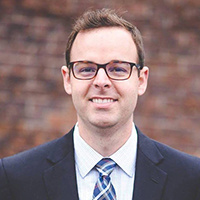Neola White Collar Crime Lawyer, Iowa
Sponsored Law Firm
-
 x
x

Click For More Info:
-
The Law Offices of Richard L. Cooper, P.A.
848 Brickell Avenue Suite 800 Miami, FL 33131» view mapDWI/DUI, Drug Trafficking, Felony Nationally Ranked Top 40 Under 40
With Richard L. Cooper you can expect a trusted confidant who will work diligently to fully understand your case and determine a road map to help you regain control of your life.
800-756-2781
Not enough matches for Neola White Collar Crime lawyer.
Below are all Neola Criminal lawyers.
Scott Miller Thorson
✓ VERIFIEDAccident & Injury, Criminal, Workers' Compensation, Estate
Scott Thorson grew up in Omaha, Nebraska, and attended Nebraska Wesleyan University, where he graduated in 2008. Mr. Thorson received his legal traini... (more)
FREE CONSULTATION
CONTACTBrian S. Rhoten
Lawsuit, Workers' Compensation, Criminal, Bankruptcy & Debt, Mass Torts
Status: In Good Standing
FREE CONSULTATION
CONTACTLarry J. Melcher
Family Law, Criminal, Bankruptcy, Personal Injury, Medical Malpractice
Status: In Good Standing Licensed: 32 Years
FREE CONSULTATION
CONTACTDrew Harry Kouris
DUI-DWI, Administrative Law, Bankruptcy, Personal Injury, Car Accident
Status: In Good Standing
Alan David Martin
Divorce & Family Law, Criminal, Personal Injury, Car Accident
Leslie G. Peters
Criminal, Civil Rights, Divorce, Bankruptcy
Status: In Good Standing Licensed: 27 Years

 Richard L. Cooper Miami, FL
Richard L. Cooper Miami, FL AboutMiami Attorney at Law
AboutMiami Attorney at Law ServicesCriminal Defense
ServicesCriminal Defense

